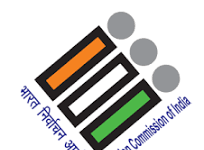
During an event organized by the Society of Indian Law Firms today, Chief Justice of India NV Ramana spoke on inequities in the legal profession (SILF). He was the featured speaker at the SILF’s launch of a coffee table book.
According to Justice Ramana, “I recall a period when, while it was very simple to get a law degree, it was extraordinarily difficult to make a living off of one. ‘Why are you studying law?’ people would question at my graduation. Have you been unable to find work elsewhere? ‘Do you have any objections to being married?'”
“For a first-generation lawyer, a sustainable practice in the courts was a dream which was rarely realised. Therefore, it was often considered as a degree of last resort. Speaking from personal experience, due to lack of resources, most of us learnt while practicing,” he said.
Justice Ramana was born into a farming family in the Krishna region of Andhra Pradesh’s Ponnavaram hamlet. Before becoming a judge, he worked as a student leader, journalist, and lawyer. His term as Chief Justice of the International Court of Justice will end on August 25, 2022.
Justice Ramana remarked during the occasion, “I’m not convinced the current situation is any different. The fact is that there are still inequities in legal opportunity.”
He said that India’s economic liberalization had significantly altered the legal environment and that as business and investment grew, so did the demand for attorneys with specialized understanding in business and corporate law.
He went on to say that Indian law firms are now on par with their worldwide counterparts and that many of them have positioned themselves as a one-stop-shop for all legal issues.
He did, however, say that “The community outreach of Indian legal companies is an important factor to consider. The common assumption is that legal firms are exclusively for the benefit of the wealthy. People, even attorneys who work in the courts, have the misperception that law firm operations are unrelated to society. Such misconceptions must be dispelled as soon as possible.”
“Internationally, law firms are taking up several social causes and actively engaging in providing justice to those in need. I urge you all to take up more and more pro-bono cases and reach out to those who are inhibited from reaching us. When it comes to fulfilling our constitutional aspirations, we all must do our bit.”
He also said law firms are currently limited to tier-1 cities which is leading to lack of diversity. Tier-2 and tier-3 cities are increasingly becoming hubs of commercial activities and firms should hire the local talent so that young lawyers in smalls towns can also get access to equal opportunities and create a more inclusive environment, he added.








